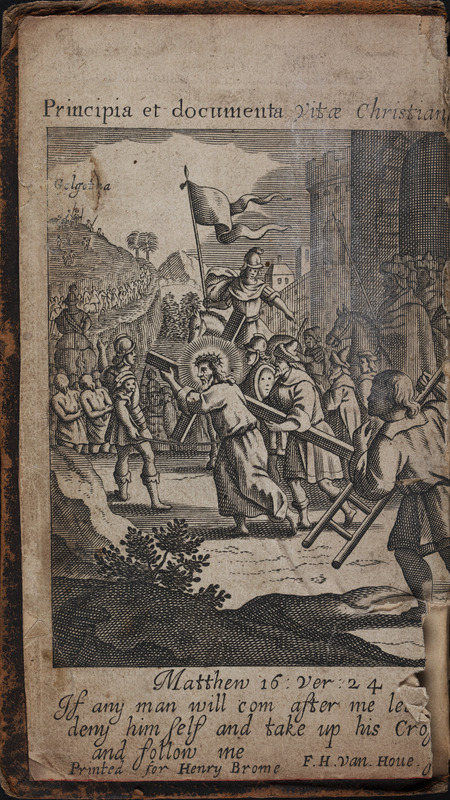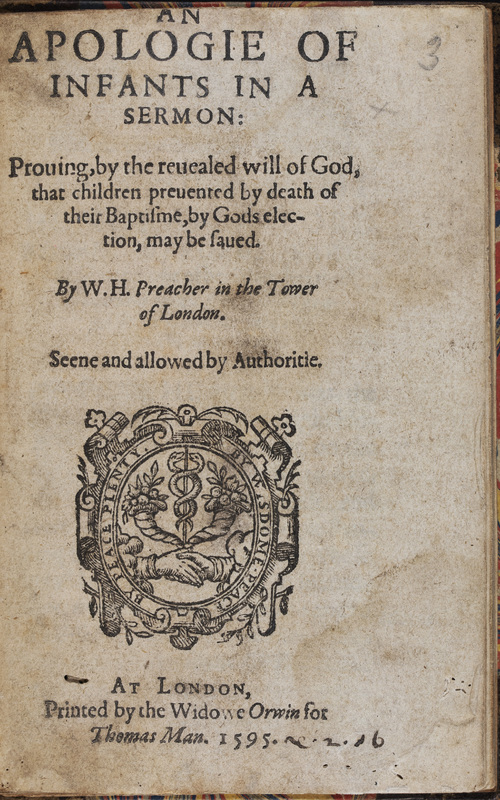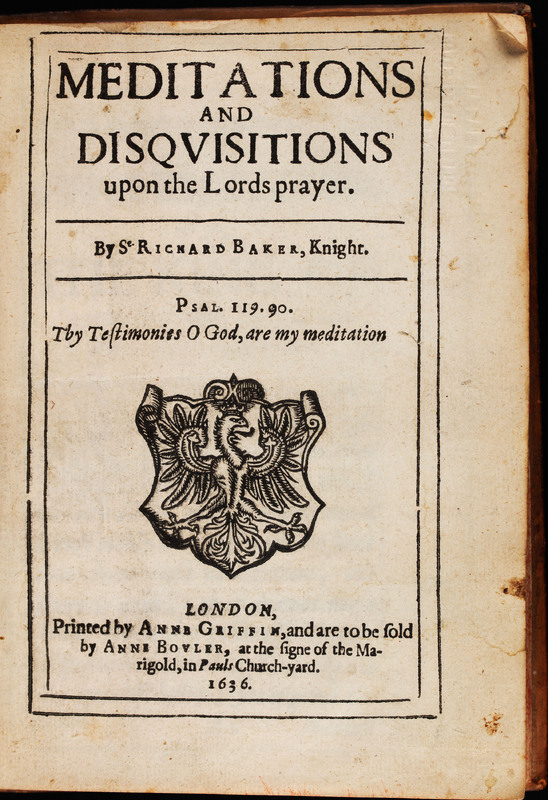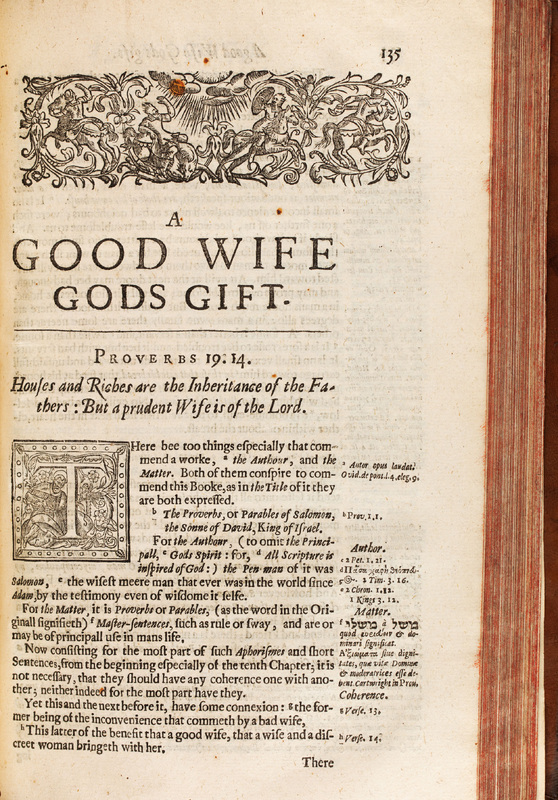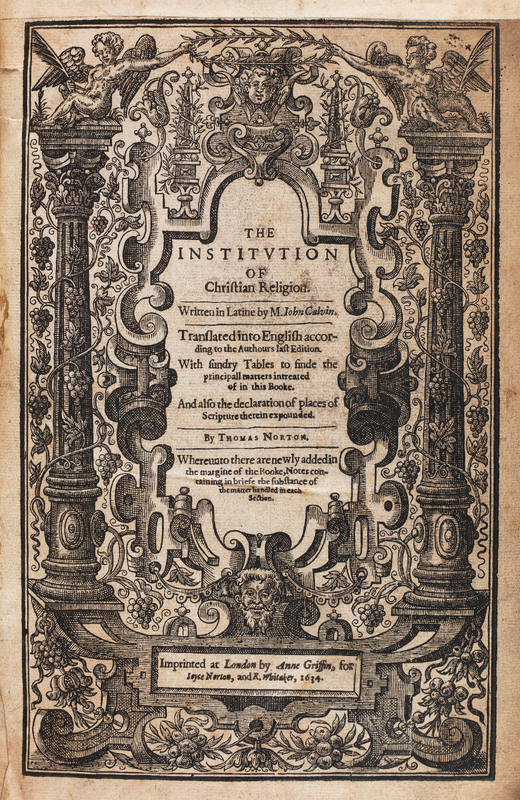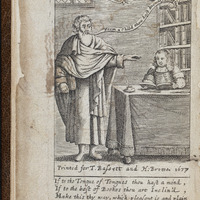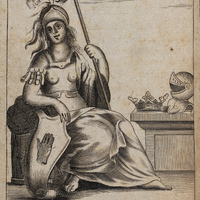Exhibit Contents
- Chez La Veuve
- Religion and Moral Instruction
Religion and Moral Instruction
The majority of items printed before 1700 were of a religious nature. Sermons, bibles, Books of Common Prayer, and books on moral instruction were not only prevalent, but considered "appropriate" reading for women.
Mary Clark printed this moral instruction book for Henry Brome, who also worked with her late husband, Andrew. Joanna Brome, Henry's widow, later carried on his business.
This sermon on baptism was likely aimed at a female audience-mothers who were urged to baptize their children. This book, printed by the Widow Orwin, was printed for Thomas Man (fl. 1576-1625), a prominent bookseller, highly active in the Company, who specialized in theological materials.
This text is another example of women working together to print and disseminate literature. Anne Boler (fl. 1635-7), continued the work of her late husband, James (fl. 1626-35), selling primarily theological works in St. Paul's Churchyard, one of the centers of printing and bookselling in London. Anne Griffin (fl. 1634-43) was the widow of Edward Griffin I (fl. 1613-21). In 1643, Griffin was reprimanded by the Company for publishing Thomas Becon's Displaying of the Popish Mass, an item which the Archbishop Laud, the sanctioned censor at the time, wished to repress.
Another example of a moral sermon directed towards women. Edward Brewster (fl. 1621-1647) specialized in theological works. Fulke Clifton (fl. 1620-1644) specialized in broadsides and political pamphlets, which makes his commission of this particular work interesting. The notes are in Greek and Latin, easily accomplished by an established printing house such as Anne Griffin's, which would likely own several fonts of type.
This seminal text by Calvin, in such a large format, was no small undertaking for any printer. Anne Griffin, as a relatively wealthy widow, was likely one of the few printers who could afford to do so, and in this case, took on partners as well. Joyce Norton (fl. 1632-37) was possibly the widow of John Norton, a printer who died in 1612. She also printed in partnership with Richard Whitaker (fl. 1619-48), a prominent bookseller.
